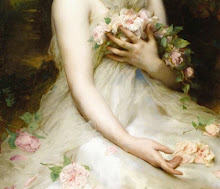Thursday, 22 April 2010
The Four Quartets and Film
The above clip matches the quote from Little Gidding on the first full page that I read. While reading that section I always seemed to be reminded of the idea of cyclical time, both of the seasons and life itself. The cycles of life and death seem present throughout Eliot's Four Quartets, but no where is it more perfectly seen than in the changing of the seasons. The change of seasons for me seemed to symbolize an awakening/rebirth both of nature and ourselves on our return. Since our theme was dolce domum, or home sweet home, then like the seasons we are always returning to where we began but each time anew. Eliot writes that "we will arrive where we started and know the place for the first time." This awakening,or knowing, is mirrored in the changing of the seasons, a new life created from "death." Not a literal death but death of our old surroundings into the strangely familiar ones we encounter on our return. This is the way man and nature are eternally connected in this shared rebirth through our journeys. The place is strangely familiar when we return, and Eliot writes that "the soul's sap's quiver" which is our recognition of something familiar in "home." He also writes that it is not spring in times covenant, in that it is not a literal changing of the seasons, but a returning to and awakening even if we are in our darkest hour. It is the "pentecostal fire" that burns within us that leads us to "home" and a rebirth in our surroundings. In the recognition of this strangely familiar place when "we arrive where we started and know the place for the first time" we see the idea of cyclical time in our journey "home."
The above clip is from American Psycho and goes with the quote I read from the first 12 lines of page 53. This follows along with what I wrote about above in relation to the seasons and returning "home." When we arrive to the strangely familiar place and know it for the first time, it is not only our surroundings that are changed but our sense of self as well. This is seen in the clip in that there is a focus on self, but no recognition of self, Bateman is just not there. This new self that emerges when we reach "home" is both ourselves and not because we have changed through our journey back. On our journey we can be aware of different selves, but when we finally reach home we must fully recognize the self now present. This is a recognition of a strangely familiar self. Eliot writes of this new self on arrival "home" as "knowing myself yet being someone other." For me this quote shows that it is not only our "home" that is altered after our journey but also ourselves, and when we return we must recognize this new self that we encounter. We must become no longer an entity but a human being and this is done through the recognition of self.
Subscribe to:
Post Comments (Atom)

No comments:
Post a Comment